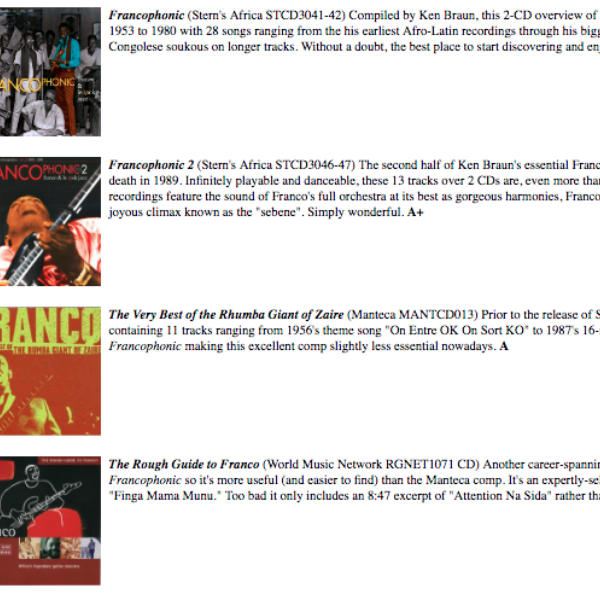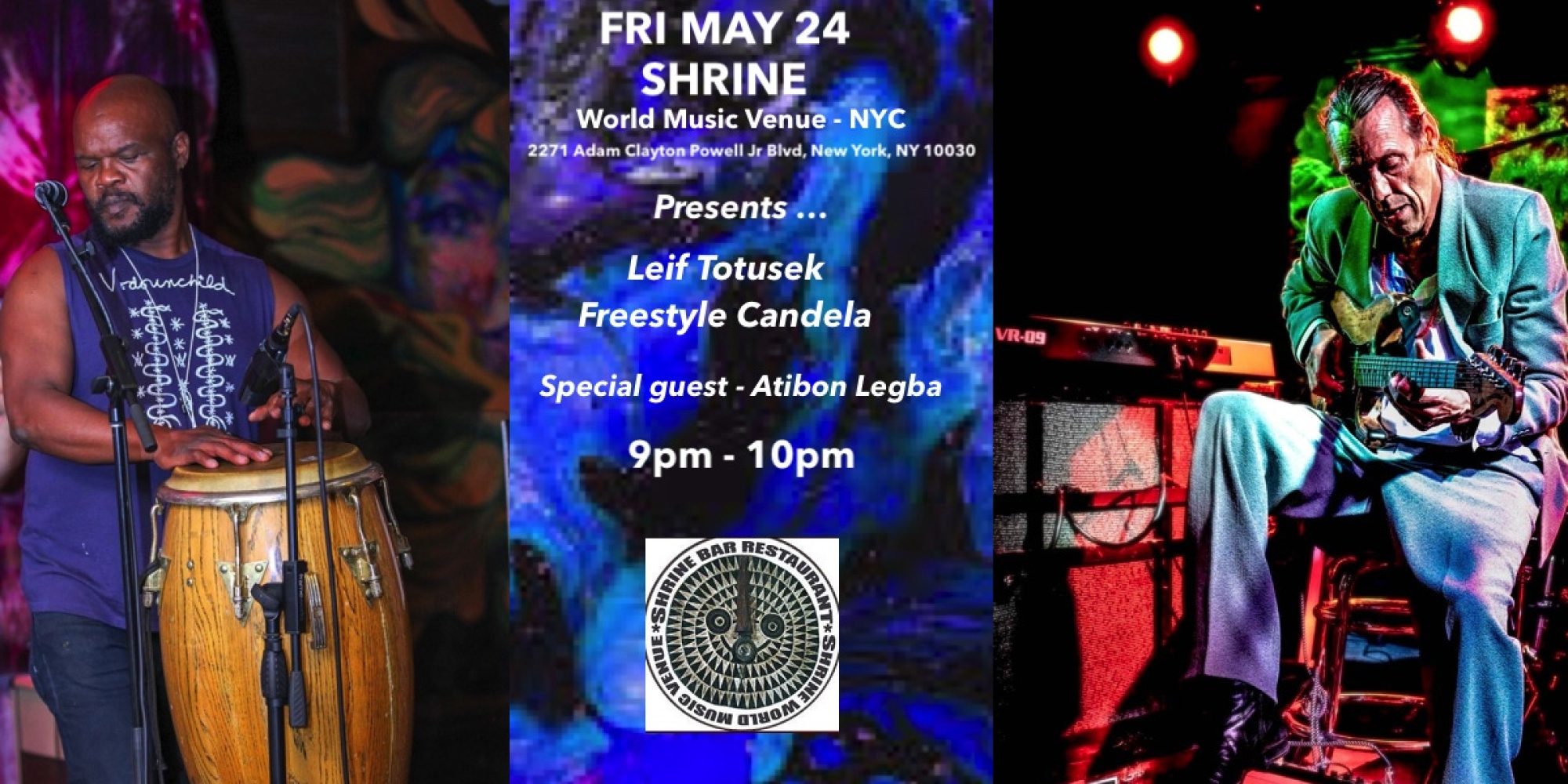Seattle-based guitarist and bandleader Leif Totusek has been playing African guitar styles for some 40 years, notably in the U.K. in the 1980s with Somo Somo, a leading Congolese band fronted by legendary guitarist Mose Se Fan Fan. In addition to leading his signature band, Freestyle Candela, Leif has been part of a host of bands and events spanning styles from around the African continent and the Caribbean. Afropop’s Banning Eyre met Leif in Boston in the early ‘90s, and briefly played in one version of Freestyle. On May 24, Leif will play a set at the Shrine in Harlem. Banning took the occasion to catch up with Leif over Zoom. Here’s their conversation.
Banning Eyre: Leif, it's been ages since we crossed paths. But, boy, I can’t forget those days in Boston when you were fresh off your experience working with all these amazing musicians in the U.K., especially Congolese guitarist Mose Se Fan Fan. Then you had this interlude in Boston, where we met in the early ‘90s. That was the start of my transition into playing African music. And I've been doing ever since. But let’s go back a little in your story. How did you come to play African, and particularly Congolese, music in the first place?
Leif Totusek: This is a funny story. So I had moved to London in the early eighties, and I was playing with a Nigerian band, Eddie Edem and Highlife International. There's this club in London called the Tabernacle, and we would open up for all the major African bands in England like Orchestra Jazira, Dudu Pukwana… And one of them was Mose Se Fan Fan, and I said, “Oh, my God, listen to this guy play guitar!” I hadn’t really been exposed to a lot of soukous but I had listened to it. And I said, “Bro, I wanna play with you.” Fan Fan barely spoke any English, and I didn't speak French at that time.
So one day I was in a park. I was working as a dishwasher. And this dude was writing out some some music notation, and I looked over his shoulder. “Oh, that’s Charlie Banocos you’re working on. I'm a jazz musician from America…” So we hit it off. That was John Glyn, great saxophone player. And he said, “You should come and hear this great Zairian guy I'm playing with.” Then I heard Somo Somo rehearsing, and I said, “Oh, my God! This band is phenomenal. If you ever need a guitar player, call me.” And they called me, and I went and auditioned for Fan Fan. I remember the song he played for me, and I played it right back at him. And he talks to his interpreter. He says, “Tell him this. You’re the first white boy I’ve ever seen who could play my music. You got the gig.”
So for the next six or seven years in London I played with him, and he was just such an incredible band leader. He was so precise. I think I saw him miss one note in seven years. I mean very precise. He knew exactly how the high hat and my rhythm should go. He was the orchestrator, the genius band leader, and therefore his bands were very, very tight.
That's an education you can't buy.
He was a master musician. Badass.
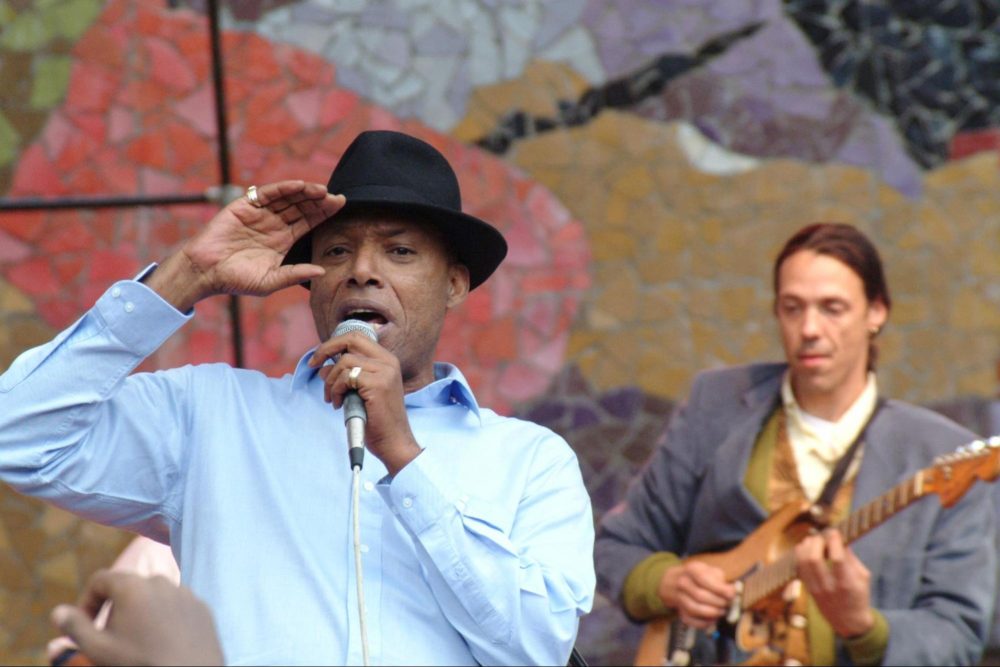
Over the years since. I know you've played with so many interesting people across the map from jazz to pop to all kinds of African music. And of course, being in Seattle, you're at a real center of Zimbabwean music.
Yeah. I started with Zimbabwe, with Lora Chiorah-Dye and Sukutai. That was my band, way before I went to London.
That's where the whole American infiltration of Zimbabwean Shona music started, in Washington State, when Dumi Maraire came to teach there in 1968.
Dumi! One of the greats, yeah. He opened up for the Grateful Dead and all that. He was huge here in Seattle, which led to the Zimfest festival and all that. I used to jam with him, and he would say, "That was heavy." You're still part of that right? Thomas Mapfumo moved to Eugene.
As it happens, I just saw him last week. I hadn’t seen him since before Covid.
Wow!
He's 79 years old and getting ready to retire from the concert stage. But he's still writing and recording songs. It was really nice to see him. But the time of Dumi is long in the past now. What's life like for you in Seattle these days? You’ve still got your band Freestyle Candela. And I see you’re playing with other groups too. Tell me about it.
Yeah, Freestyle Candela. We’ve been playing at the World Rhythm Festival and a lot of beautiful places like the Triple Door in Seattle. I'm playing for this great band tomorrow, on my birthday…
Oh. Happy birthday.
Thanks you, thank you. “Boka” Kouyaté and the Djeliyah Band.
Griot music.
He’s a griot, and he's so fantastic. Naby Camara from the band. Fatala. You remember Fatala?
Sure. Burkina Faso. Great band.
Yes, and we have two balafons in the group, and then a great percussionist from New York City, Foluso Mimi. He's an incredible djembe player. It’s a great band. Beautiful. And I'm also working with a Moroccan band here called Sahara Sounds, and they're gnawa music, chaabi music from that region. Very beautiful. Then I got my jazz trios. I had a jazz band called 1, 2, 3 for the last 35 years or so. My drummer just passed away . So I created two new bands. One of them is called Triunity. We mix a little bit more Bebop and African music. The other one is called Seatown Mardi Gras Band, where we add a little bit more Mardi Gras music. And then I'm doing whatever, you know. I play all kinds of music. But my focus, my focus has always been African.
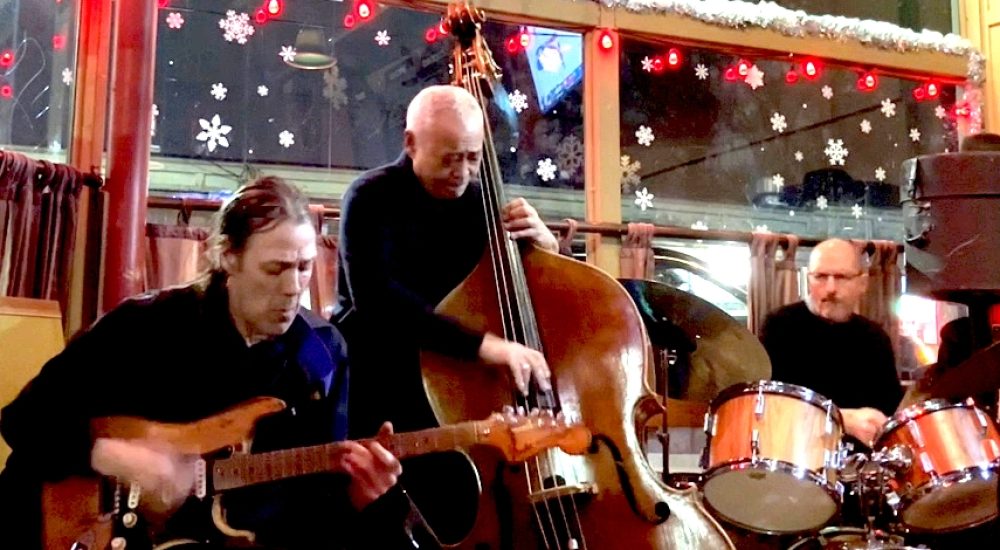
That sounds like quite a handful. So what are you going to bring to the Shrine in Harlem when you come to New York on May 24.
I'm gonna bring my original compositions based on Congo Zaire, Haiti, Mali… A mixture of Seattle spice on top, you know.
Will you play solo?
I'm gonna play with a Atibon Legba, a Rasin percussionist from the Haitian band Batwell Rada and Tjovi Ginen.
I know him well. He’s another one who goes back to Boston in the early ‘90s.
Yeah, he's a wonderful percussionist. Beautiful. So he's with me on the gig. I'm gonna play my music. One of songs will be “Somo Somo” to dedication to Mosese Fan Fan’s band, Somo Somo. And then another song's gonna be “Papa Camara,” mbalax music. That one I'm gonna play for Ibrahima (Camara), who I played with for many, many years, and.
Of course. Another great veteran of the Boston scene.
And then I have a few other songs. I’ve got a song called “Zai Rumba,” because I wrote that when it was still called Zaire. There was this dude around called Graeme Ewens. He was writing a book about Franco and Fan Fan.
Yes. Congo Collossus. Fantastic book.
Yeah. And he was always asking Fan Fan all these questions. They're speaking in in French all the time, and I'm sitting there, smoking my spliff, you know, hanging out with these guys.
No doubt.
So that's what I remember. That's Zaire soukous. But I wrote all these songs. Then there’s “Celina,” which is the Afracondo style, more the Cuban influence. I'll talk about the guitar styles. “Beautiful Thoughts” is very Malian style. Maybe I'll play a song called “Wapi yo zala Wapi äwa,” which means “I need you here with me tonight.” It’s in Lingala, so I'm mixing Lingala with a little bit of English, a little bit of Creole, but it’s all about the guitar.
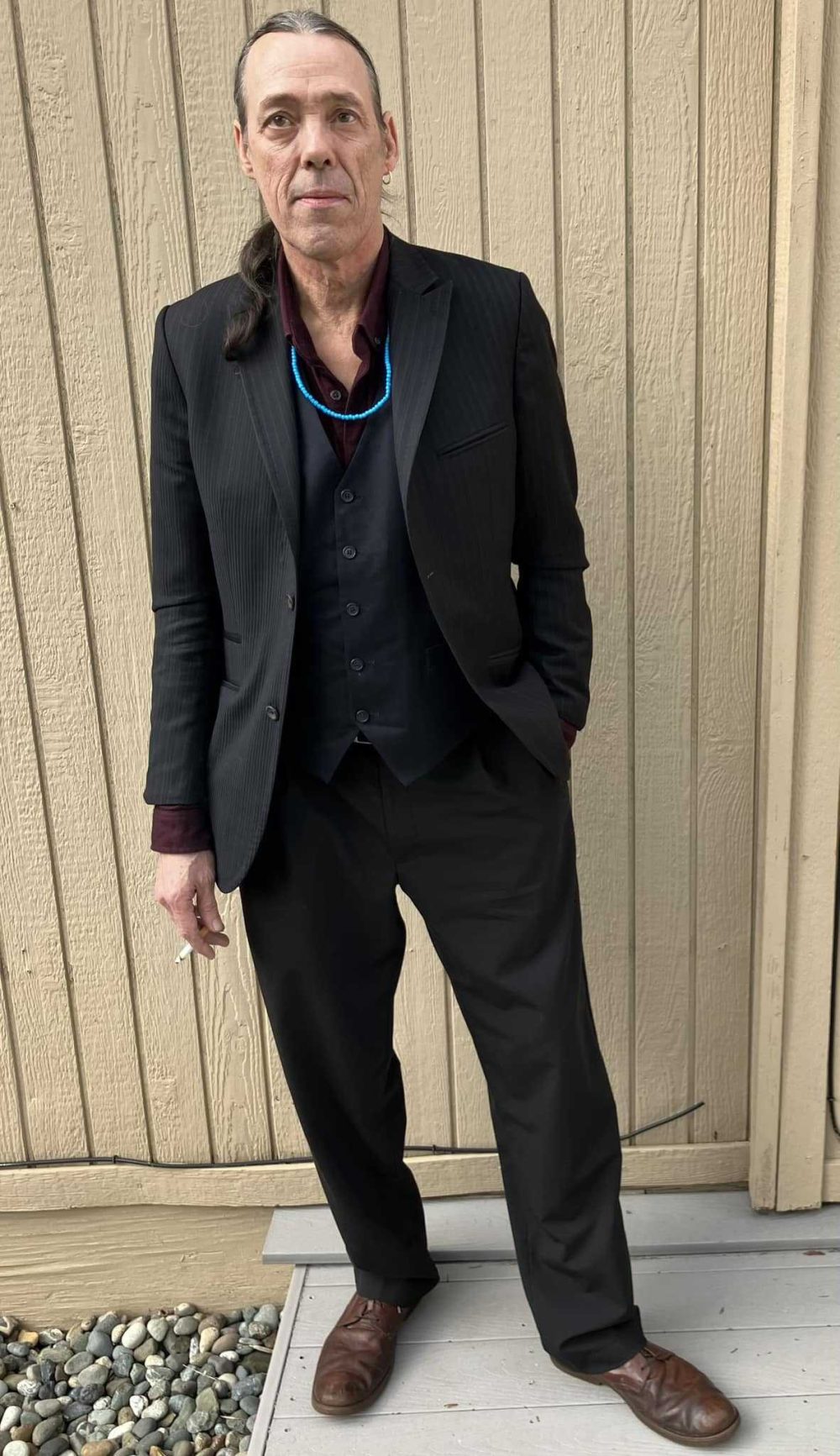
Have you played the Shrine before?
I have. I played there in 2009 with Freestyle.
I know the other reason you're coming East is for this memorial for our dear friend Ralph Gasparello, who we lost this year.
Yes, that's the main reason I'm coming. I'm gonna go to a memorial on a farm somewhere in Connecticut.
It’s a sheep farm, with a recording studio, a beautiful place, a place Ralph played and recorded a number of times. For readers, Ralph played in the Boston version of Freestyle and then in a number of Boston soukous bands that I was part of after you left: Rumbafrica, Kolo Mboka, Sankai… I saw him at that farm the last year, playing with Tjovi Ginen, who have been on Afropop, by the way. Ralph was an awesome musician and a terrific person.
Yes he was. So I'll be there bringing my guitar to play for him because he had asked for drums all day long if he passes. So that's what we're gonna do for him. Rasin style. You know, I was the original guitar player for Tjovi Ginen.
That does not surprise me. Well, they have carried on, and Ralph was still sounding great, going strong when I last saw them.
Yeah. My brother. I mean, Ralph joined Freestyle Candela 1990, ‘91. I was there for about five years or whatever, and he was my main dude. He's been my best friend ever since, and I'm so sad that he passed.
Amen. He was a gem. Well, Leif, I’m so glad you’re still carrying the flag for Congo music, soukous. You know, Afropop was recently in Dar Es Salaam, and I was happy to see there are still a lot of bands that play the big-band, Franco-like sound.
Remy Ongala.
Exactly. He’s passed now, but that music still lives in Tanzania.
That’s so cool. I love to hear that. There was a band that came from Namibia to Seattle, and they played just like Franco, just like that style we're talking about, and a big band too,
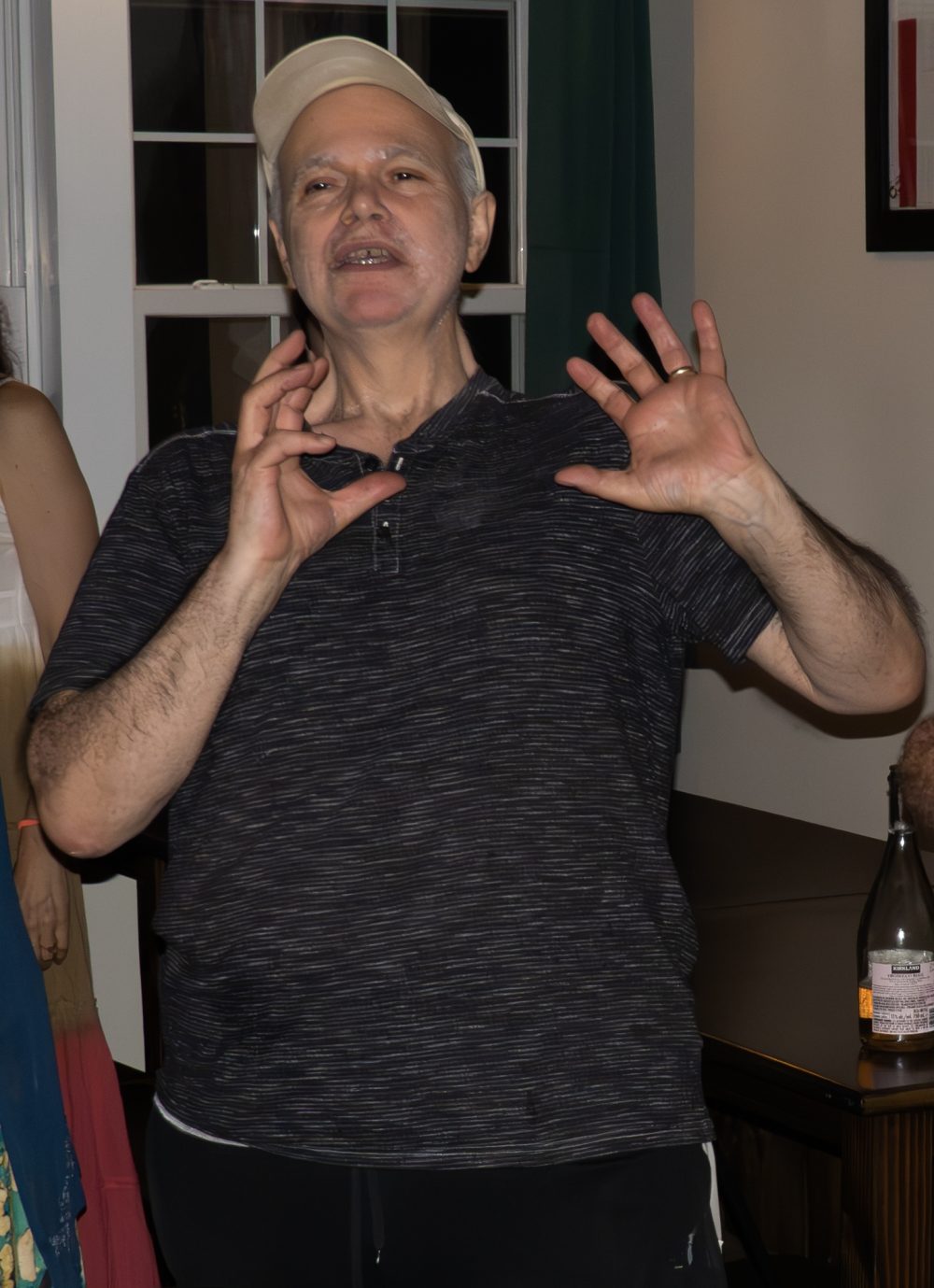
You know, these days, everybody remembers Fela. Not so much Franco. These days every city in the world has an Afrobeat band, but there aren’t many doing the Congo sound. There should be a rumba band in every city in the world, too.
But they don't know how to play it. It's harder. I mean the guitar style. Woo!
I hear you, man. Very disciplined music, very challenging.
Banning, I'm so happy you're still doing this man. It makes me just makes me happy that you.
You too, Leif. Keeping Seattle on its toes.
Well, we still have Jon Kertzer. We lost Doug Patterson (longtime Seattle DJ spinning African music, and a prolific compiler of East African, especially Kenyan, guitar band music.)
Yes, another big loss.
Yeah. That’ one guy that we miss. But keep it up. Dude.
Yeah, you, too, man. I can't wait to see you at the sheep farm.
Thanks, Buddy.
Related Audio Programs
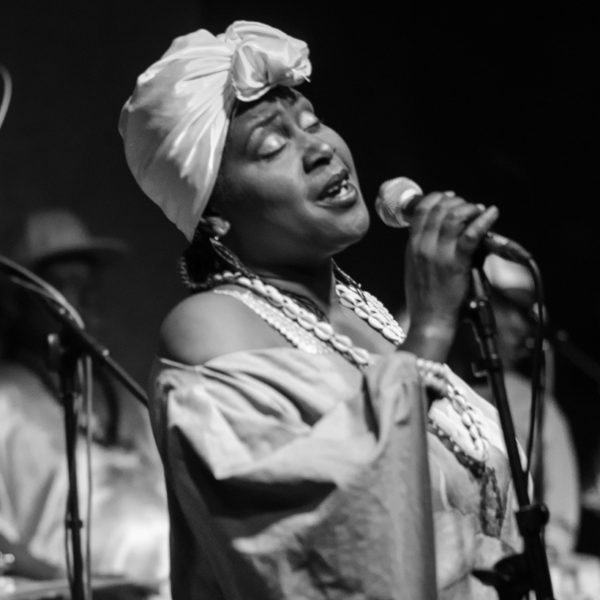
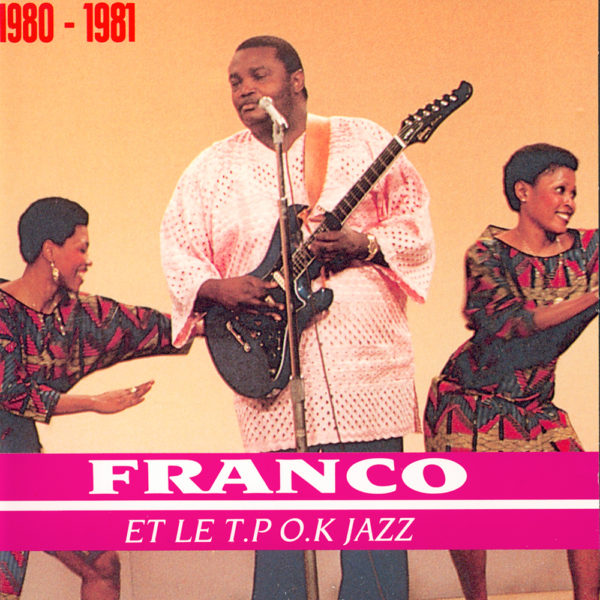
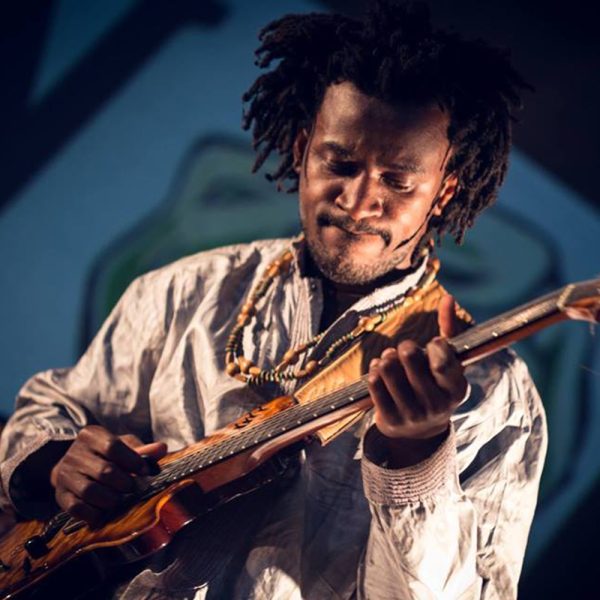
Related Articles
